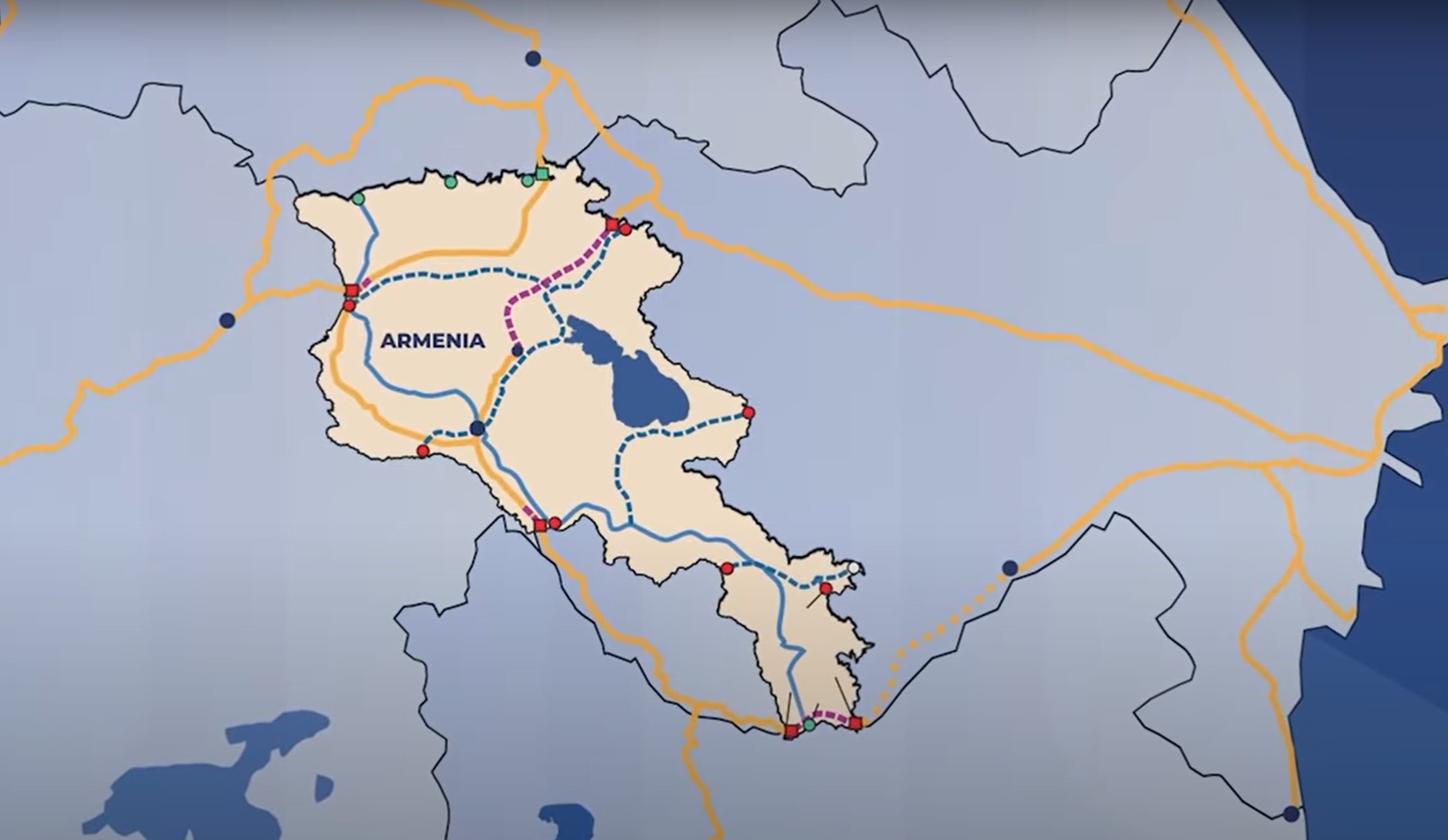The US and the Transport Corridor Through Armenia: A New Geopolitical Chess Game in the South Caucasus

On July 16, 2025,
it was revealed that the United States had proposed taking control of a
transport corridor linking mainland Azerbaijan with the Nakhchivan exclave
through Armenia’s southern Syunik province. This proposal, though unexpected,
is a logical step given the shifting balance of power in the South Caucasus.
The corridor, known in Azerbaijan as the “Zangezur Corridor” and in Armenia as
part of the “Crossroads of Peace”
initiative, has been a source of heated disputes for several years.
For Azerbaijan,
establishing a direct land connection to Nakhchivan and further to Turkey would
significantly reduce transportation costs and strengthen its position as a transit
hub between Europe and Asia. President Ilham
Aliyev views this project as a strategic victory and a symbol of the
unity of the Turkic world — “from Istanbul to Tashkent.” In addition, the
corridor would reduce Azerbaijan’s dependence on Iranian and Georgian routes
and enhance its regional influence.
For Armenia,
losing control over part of Syunik could effectively split the country into two
and deprive it of a strategically important link to Iran. Although the corridor
could theoretically generate revenue, Yerevan’s primary concern is maintaining
full control over its territory and avoiding becoming a mere transit route
under foreign administration. The Crossroads
of Peace initiative proposes the mutual opening of all communications,
which could turn Armenia into a regional logistics hub without compromising its
sovereignty.
American management of the corridor could serve as a
security guarantee and reduce the risk of direct clashes between Armenian and
Azerbaijani forces. Washington is clearly seeking to strengthen its presence in
the region, displacing Moscow and Tehran from key logistical projects. The
United States is also interested in supporting the so-called “Middle Corridor,” which connects
Europe and China while bypassing Russia.
Moscow perceives the US
initiative as a direct challenge. Until now, Russian peacekeepers were
considered the main potential guarantors of the corridor’s security. Weakening
Russia’s influence in the South Caucasus would deal a serious blow to its
regional standing.
Tehran is firmly
opposed to any format that might cut Armenia off from the Iranian border. For
Iran, the Armenian-Iranian connection is a strategic lifeline, and the growing
American presence to its north is viewed as a threat.
Ankara, on the other
hand, actively supports the project, as it would open a direct route to
Azerbaijan and further into Central Asia. Turkey is interested in rapid
implementation and is expected to exert both diplomatic and economic pressure
on Yerevan.
The United States is expected to actively lobby its
proposal, offering Yerevan security guarantees and economic incentives. A
possible compromise could involve mixed control and a package of mutual
concessions, such as the opening of the Armenian-Turkish border and the lifting
of certain sanctions. If implemented under international supervision, the
project could become an important step toward peaceful coexistence, but it
would also strengthen American influence in the region and provoke resistance
from Russia and Iran.
Thus, the US proposal to manage the transport corridor is not merely an infrastructure project but part of a much larger geopolitical game. The South Caucasus is turning into an arena of competition between global powers, and the outcome of this struggle will determine the region’s future for decades. For Azerbaijan, this is an opportunity to consolidate its military and political gains in Nagorno-Karabakh. For Armenia, it represents a difficult choice between preserving sovereignty and pursuing economic opportunities. For the United States, it is a chance to strengthen its position in a strategic region where the interests of the West, Russia, Turkey, and Iran intersect.
 Latest news
Latest news Latest news
Latest newsGreece Plans to Exclude Turkiye from Future Defense Contracts
20.Feb.2026
U.S.-Based Mars Launches Major Investment Project in Kazakhstan
20.Feb.2026
Parliamentary Elections 2026 in Armenia as a Geopolitical Referendum
20.Feb.2026
Russia and Ukraine Fail to Reach Agreement in Geneva
19.Feb.2026
The South Caucasus in U.S. Foreign Policy: Implications of High-Level Visits for Russian and Chinese Regional Aspirations
18.Feb.2026
Ukraine Imposes Personal Sanctions on Belarusian President Alexander Lukashenko
18.Feb.2026
72% Against the Authorities: Economic Dissatisfaction Hits Record Levels in Turkiye
17.Feb.2026
Bulgaria Strengthens Defense: First American Stryker Vehicles Delivered
17.Feb.2026
Moscow Criticizes Plans to Build a U.S.-Backed Nuclear Power Plant in Armenia
16.Feb.2026
Washington expects Tbilisi to strengthen ties amid regional changes
15.Feb.2026

 28 Feb 2026
28 Feb 2026









